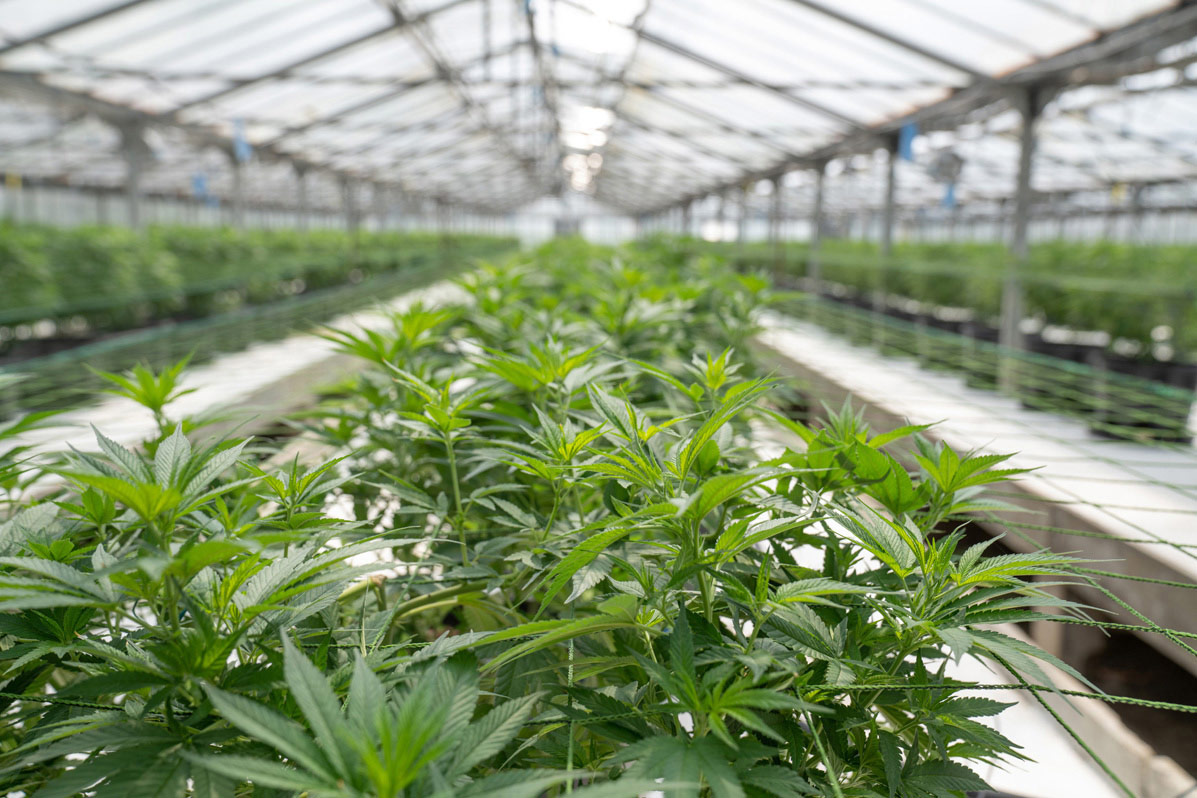Marketing and advertising cannabis products in the U.S. these days is no easy task. The dichotomy between federal and state cannabis laws has forced states to create their own industry regulations, resulting in an ad-hoc, piecemeal regulatory environment in which each state institutes unique rules and enforcement mechanisms. Despite this state-focused framework, however, federal oversight still looms large, particularly with regard to consumer protection matters. Agencies including the Federal Trade Commission and Food and Drug Administration have begun deploying their enforcement powers over cannabis businesses, increasing the regulatory burden industry participants face.
These issues are most acute for cannabis marketers that operate in multiple states and must confront a litany of differing and sometimes conflicting regulations governing their practices. Additionally, because many may simply be unaware of the restrictions they face, they risk finding themselves unintentionally violating these regulations. As the cannabis industry continues to grow and gain legitimization, here are some of the top questions marketers may have:
What is the current legal status of cannabis?
The 2018 Farm Bill legalized hemp and hemp-derived products, defined as cannabis containing .3% or less THC. This bill includes products such as CBD and specific other cannabinoid isolates.
Cannabis containing more than .3% of THC remains federally illegal. Even so, the majority of states (currently about 75%) have legalized such cannabis for medical or recreational usage.
Can I advertise cannabis products nationally?
Because cannabis remains a Schedule I drug under the Controlled Substances Act, advertisements for cannabis products using means of interstate commerce are generally prohibited. This means advertising via cross-state radio and television programs using federal airwaves is technically illegal, as is conducting interstate telemarketing initiatives.
Currently, advertising directed toward the general public and transmitted through the internet represents a legal gray area but is also generally prohibited depending on the service provider. Marketers should review their website domain and service provider terms & conditions, end user licensing agreement, and similar policies to determine if cannabis advertisements are permitted.
Can I advertise cannabis products locally?
Most states that have legalized cannabis either for recreational or medicinal use will have enacted strict rules or regulations governing the intrastate advertisement of cannabis. Marketers generally may advertise cannabis products subject to the particular state’s limitations and requirements. For example, in Ohio, marketers may not use images of actual medical marijuana patients or children in their advertisements. In addition, Ohio dispensaries must sign up with an online web portal and submit marketing materials to the Ohio Board of Pharmacy for approval prior to publication or display.
Other regulations or moratoriums on cannabis advertising may also be enacted at the local and municipal level. For example, when Minnesota legalized adult-use cannabis in mid-2022, several Minnesota towns instituted a moratorium on the sale and advertisement of cannabis edibles and CBD-infused beverages pending the development of new rules and regulations. Marketers should consult local rules and ordinances in addition to state-level laws when developing a marketing plan for their cannabis products.
It is important to note that these regulations differ drastically from state to state and even from municipality to municipality. Working with experienced legal counsel can ensure advertisements comply with all applicable state laws and regulatory requirements.
Can I advertise hemp-derived products or cannabis-related services?
Hemp-derived products containing .3% or less THC are federally legal and may be advertised nationally and locally subject to applicable regulations. Additionally, ancillary cannabis-related services such as security providers, industrial equipment manufacturers, or hydroponic equipment suppliers that do not directly touch the cannabis plant, are federally legal, and may also advertise nationally and locally.
Do other marketing and advertising laws apply to hemp, CBD, and cannabis products?
Yes. All traditional and generally applicable marketing and advertising laws apply to cannabis, hemp, and hemp-derived products, including a broad-based set of rules ranging from celebrity and influencer endorsements to environmental marketing claims. These laws remain valid regardless of federal legality and the product or type of product in question.
Perhaps most significantly, marketers should ensure they do not run afoul of various laws governing unfair, deceptive, and abusive acts or practices (commonly referred to as “UDAAP” laws). These laws generally prohibit the use of misleading, inaccurate, or deceptive tactics in advertising. They also require marketers to retain substantiation supporting product composition, health, or efficacy claims. For example, claims that a certain type of cannabis product was cultivated in an “all-natural” manner may require substantiation that pesticides were not used on the product. Assertions that a certain cannabis strain can help with appetite issues, insomnia, or other illnesses, must be substantiated with competent and reliable scientific evidence.
What constitutes a UDAAP violation is highly subjective, differing from jurisdiction to jurisdiction and from regulator to regulator. Each state, as well as the federal government, also has its own unique UDAAP laws, rules, and regulations. Marketers should ensure that their advertisements follow all applicable federal and state UDAAP regulations, and take special care to ensure that product packaging and marketing claims do not include deceptive statements or unsubstantiated claims regarding their products’ efficacy. Obtaining experienced counsel that is versed in these distinctions is critical for ensuring your cannabis and cannabis-related advertisements remain above board.
What are the consequences for violations of marketing and advertising laws?
The attorney general of each state is responsible for enforcing that state’s laws. Violations can result in monetary fines, the complete refunding of all profits known as “disgorgement,” or restrictions on future advertising, depending on the state and the severity of the breach.
State attorneys general are keenly watching for potential violations. For example, in mid-2022, the Virginia and Nevada attorneys general sent a letter on behalf of a bipartisan coalition of 23 state attorneys general, expressing concern about edible products containing THC and sold in packaging to look like popular snacks and sweets. The coalition warned that mimicking popular packaging or products was an unfair and deceptive practice that would result in penalties for businesses engaged in those activities.
Marketers and advertisers should also remember that as cannabis remains federally illegal, gross violations of federal law, such as using federal funds or federal services to advertise products could conceivably result in criminal penalties.
Additionally, the Federal Trade Commission enforces UDAAP violations at the federal level and can impose hefty monetary fines or injunctions on marketers who run afoul of its regulations. In particular, the FTC is increasing its scrutiny on health claims made by CBD products, and has sent warning letters to companies for unsubstantiated claims – an important step that precedes an enforcement action. An injunction may preclude individuals from future work in the cannabis sector or even from general work in marketing and advertising.
On what social media platforms can cannabis products be advertised?
Cannabis businesses generally may not use television or radio marketing to directly advertise their products across state lines. There is a legal grey area as to whether cannabis businesses may use fully intrastate television and radio advertisements to target consumers in states where cannabis is legal. In addition, whether cannabis businesses may use specific types of social media depends on a variety of factors such as the platform’s terms and conditions, the product advertised, and even the country or jurisdiction in which the social media company resides.
Currently, major social media platforms such as Facebook, Instagram, and TikTok do not permit cannabis ads due to its federally illegal status. However, these platforms may allow advertisements for hemp and hemp-derived products such as CBD. Following policy changes in March 2023, Twitter now permits limited cannabis advertisements directed towards consumers in states where cannabis is legal.
Other content providers, such as Google, may offer search engine optimization functions to cannabis products broadly but still limit the direct advertisement of cannabis products. These types of content providers may limit the reach of certain advertisements or alter SEO practices to prevent ineligible consumers, such as underage individuals, from viewing these advertisements.
What are the top takeaways for marketing cannabis?
Despite the state-by state patchwork of laws across the country, there are several hard and fast rules for cannabis marketing, no matter the state.
- It should go without saying that marketers should avoid targeting states where their product is illegal. While this may seem like obvious guidance, cannabis advertising often inadvertently finds its way into states or local municipalities that have prohibited medical or recreational cannabis. Pay attention to the geographic scope and details of your marketing campaigns.
- Marketing to minors is a huge no-no. Do not advertise to individuals under the age of 21 – this includes avoiding the use of bright images and colors that may appeal to children, mascots, and images of actual medical cannabis users in their advertisements or packaging.
- Any claims regarding the product and its performance must be truthful and non-deceptive. In particular, it is critical that any medical claims about cannabis products are supported with reliable and competent scientific evidence derived from medical studies. Because of the difficulty in doing this, many advertisers and marketers choose not to make specific health claims regarding their products.
Failure to adhere to these requirements can result in significant fines, enforcement actions, and even injunctions preventing you from working in the cannabis industry- or marketing and advertising generally- ever again. Particularly significant violations could even potentially result in criminal repercussions. The subjective nature of marketing and advertising laws and the prosecutorial discretion afforded to regulators only exacerbates these potential issues.
Because of these ramifications, proactive compliance should be a top priority for every cannabis business. Retaining legal counsel experienced with both consumer protection and cannabis laws nationwide will help ensure your business can – legally – take advantage of the full breadth of marketing platforms available.
With a practical approach, Chad provides compliance guidance and litigation defense on matters related to cannabis, advertising and marketing, teleservices, and other consumer protection issues.



